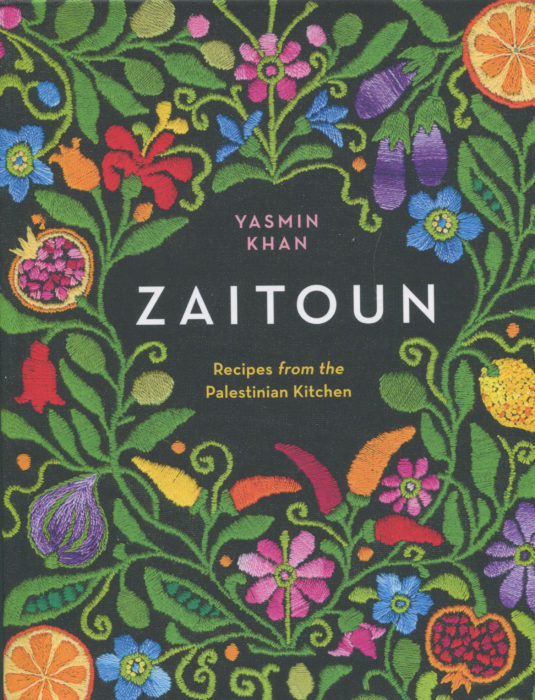
Zaitoun is the Arabic word for olive. Olives and olive oil are universal in Mediterranean cuisine. In Palestinian cuisine, they are essential and emblematic.
Author Yasmin Khan has followed two careers: now, food traveler and writer, and, earlier, human rights campaigner. Her human rights work introduced her to foods around the world and the loving techniques used to prepare them.
Yasmin has an Iranian-Pakistani heritage and a passport with stamps from across the sensitive region of the Middle East. Entering Israel to do research for this book was, to be sure, a bit arduous.
Zaitoun not a political book. There is no Palestinian state, and detailed debate about how, when, and if there should be such a state has persisted for decades. There is, to be sure, a Palestinian culture. About 4.5 million Palestinians lives in what the UN refers to as the Occupied Palestinian Territories [OPT]. These are the areas we call the West Bank, Gaza and East Jerusalem. Another 1.5 million Palestinians live within Israel. [There are yet another 5.5 million living in the US and in refugee centers in the Middle East].
Yasmin’s book is about the food those 6 million people living in Israel itself and the adjoining OPT areas. Yasmin has traveled across the entire area, from dessert to mountains to the sea. From village to cities. From small culinary businesses to home kitchen that carry on noble traditions and recipes.
The 80 recipes in this book come in five chapters:
- Mazzeh [Beginnings]
- Salads
- Soups
- Main Courses
- Desserts
Each of those chapters includes a few pages devoted to a key town where Palestinian culture carries on each day: Haifa, Jerusalem, Nablus, Gaza, and Nazareth. There, Palestinians live and work and cook side by side with Israelis. As my wife says, “Everybody Eats.” And in the two food cultures that coexist there may be a pathway to the peace sought by so many.
That very pretty book cover, with its embroidery of fruit and food, is emblematic of the intense pictures you will see in the book. Let’s look at some of the bright ideas waiting for you in Zaitoun.
The Mazzeh chapter begins with, what else, hummus but it is the second recipe you want to try, Hummus with Spiced Lamb:
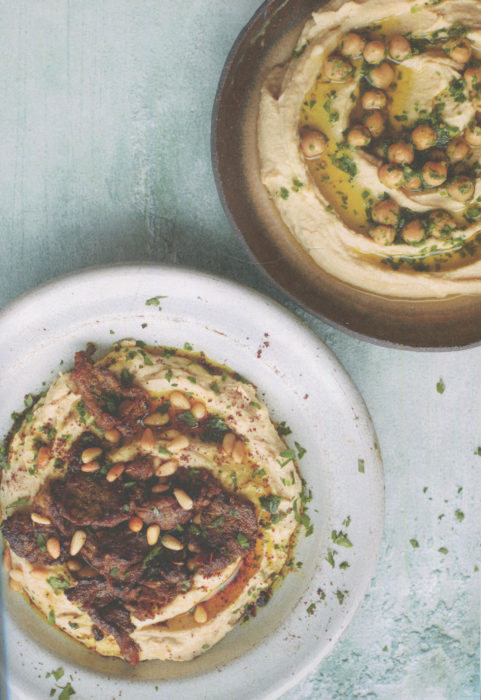
The Salad chapter begins with a charge of color and travel, Roast Romanesco Cauliflower with Tahini and Pomegranates:
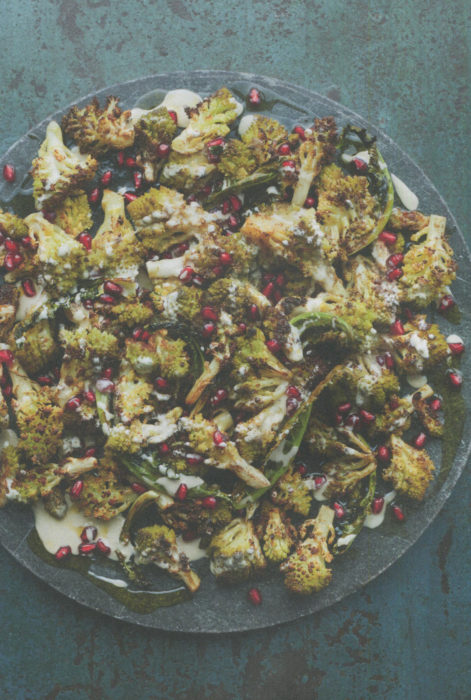
Soups includes Roasted Pumpkin, Sage and Couscous Soup:
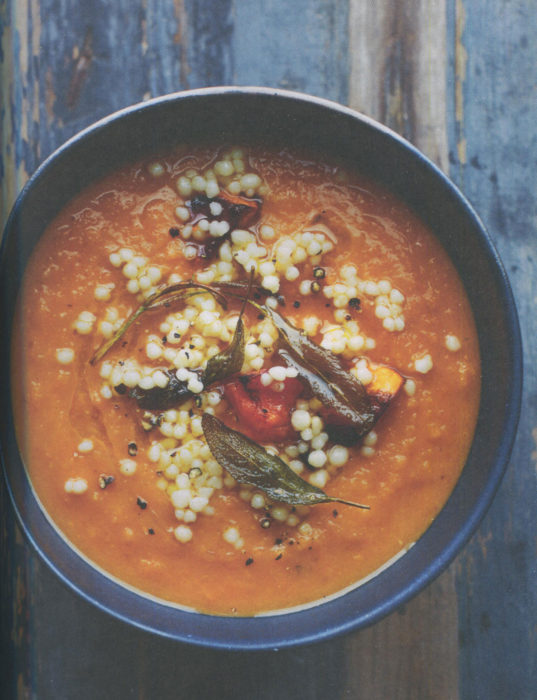
For a Main Course what could surpass Roast Chicken with Sumac and Red Onions:
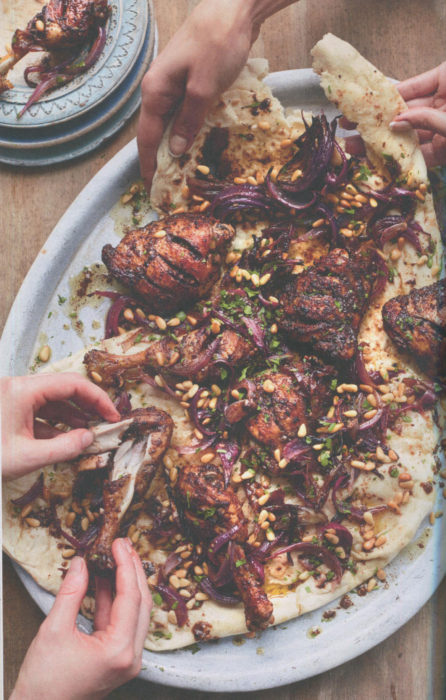
Desserts suggests this Spiced Pumpkin, Olive Oil and Orange Cake:
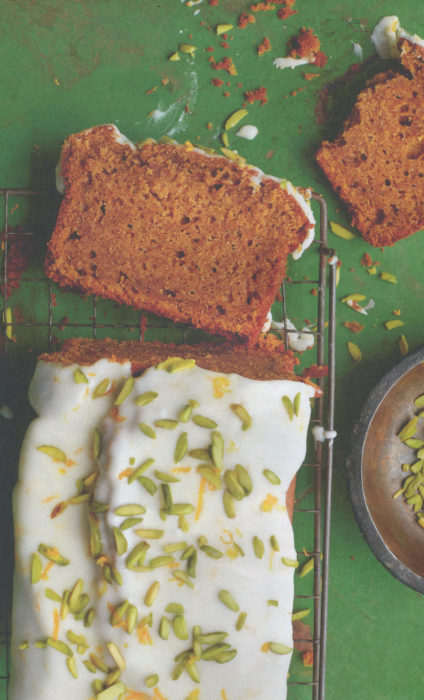
I’ve offered you examples here to drive home the power of this book. The colors jump off the page. The recipes have equal force. Multiple flavors, each distinct, merged into combinations that satisfy your eyes even before they bring delight to your mouth.
Zaitoun is a book not to be overlooked. Palestinian? Yes, wonderful Palestinian. Oh, where should you begin? Go to the desserts. Look at the Banana and Tahini Ice Cream with Date Syrup. Zaitoun will change your perspective on the world. And it will surely change how you stock your pantry.
The recipes are written with clarity, designed for the American kitchen. Yes, you can make them all. And you’ll probably want to.
